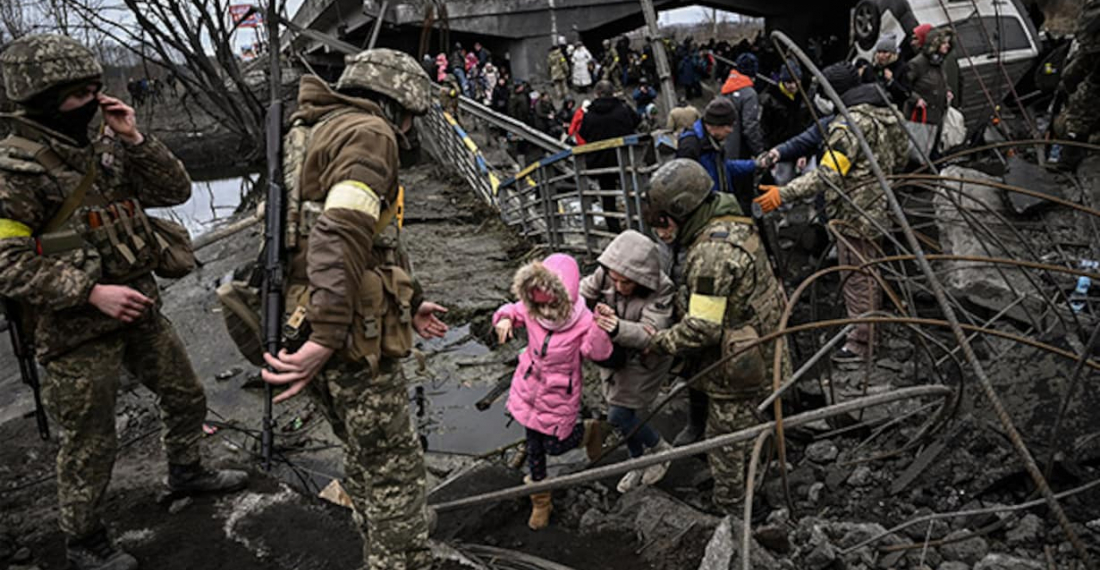As winter approaches, Vladimir Putin’s strategy in Ukraine is becoming increasingly clear. The war that he initiated in February of this year against the Ukrainian state is now becoming a punitive action against the entire Ukrainian people. The targets of the missile and rocket attacks launched by the Russian army are no longer the military installations of the Ukrainian army, but the civilian infrastructure that helps keep the nation supplied with energy, heating and water, in a false hope that this would bring Ukraine down on its knees.
This strategy, like the failed military strategy that Russia pursued in the last nine months, will not succeed. The Ukrainian nation has proved already its determination and resilience in front of Russian aggression. But this heroism does not lessen the pain that the Ukrainians are enduring, and will likely have to endure for some time.
Of course the people who suffer most in these circumstances are the most vulnerable: they are the old people in isolated villages who have decided to stay put and not be evacuated; they are children in communities away from the front line who now nevertheless have to endure a cruel cold winter.
There has never been a moment when it was as important to support Ukraine as now. The question is whether the world, and particularly the people in the countries of Europe and North America that have supported Ukraine generously so far, have the perseverance to stick with Ukraine until victory.
Up to now NATO and EU countries have provided Ukraine with an unprecedented amount of military, financial and political support. For example the current level of support for Ukraine far exceeds US support to Israel during the 1967 six-day war and the 1973 Yom Kippur War. Those wars lasted a few days – the current war in Ukraine has now entered its tenth month. Some are asking whether this support can be sustained. Europe and North America have considerable resources, but neither their financial nor their military resources are limitless. Support for Ukraine is likely to level off, and most probably decrease going forward, but it will remain high and expensive. The cost will have to be paid by taxpayers.
NATO and EU countries are democracies, and public opinion matters and helps inform and determine decisions by governments. So far public opinion has been supportive of assistance to Ukraine. There have been the occasional murmurs, but by and large people understood the importance of the moment. Even after the spike in the energy bills of most households across Europe, the level of support for Ukraine amongst the populations at large remains solid. One of the reasons is that many people understood the pain of the Ukrainian people and were happy to share some of it.
Maintaining this support is hugely important. This requires leaders and politicians across Europe and North America talking frankly and candidly to their populations, hammering in the importance of the task at hand. It requires ad hoc coalitions of political parties and groups to work together to get this message across and keep the level of support to Ukraine as high as it has been so far. It also requires civil society in its broadest sense: media, NGOs, think tanks and others, to be more active in this domain.
No doubt, Putin’s disinformation machine, which has already shown how it could create havoc in open, western political systems, will be hard at work to sow doubt and discord. They need to be exposed for what they are.
Beyond Europe and North America there is a different battle to be fought for the heart and minds of nations. So far, the global response to the Russian aggression in Ukraine has been largely adequate, and largely indifferent. Adequate because on many occasions over the past ten months Russia has been isolated in votes at the UN and in other global fora; indifferent because support for Ukraine, beyond Europe and North America, except for similar minded countries in the Asia Pacific Region, has been largely tepid, and mostly indifferent. In short, the message has not yet got across that, what Russia did and is doing to Ukraine is a threat to every country in the world because it raises the spectre of large countries devouring their smaller neighbours. In these countries even the current weak level of support for Ukraine cannot be taken fore granted. A global joined-up strategy is required to help get the message across more efficiently. Part of the problem is the historical baggage that western countries carry when dealing with the global south on such sensitive political issues, so a joined-up strategy needs to be led by those who carry the least historical baggage.
Ukraine is suffering, and even though the support of friendly countries has been unprecedented much more yet needs to be done. In Europe and North America, it is important that the pain of Ukraine is shared, and that governments and people remain resolute in their support. Across the world there needs to be a sustained effort to explain why the fight of the Ukrainian people is the fight of all nations who cherish their freedom and independence. Ukraine will win, but not before Russia inflicts further pain on its people. In the meantime the world must stand with the Ukraine people and share its pain.






